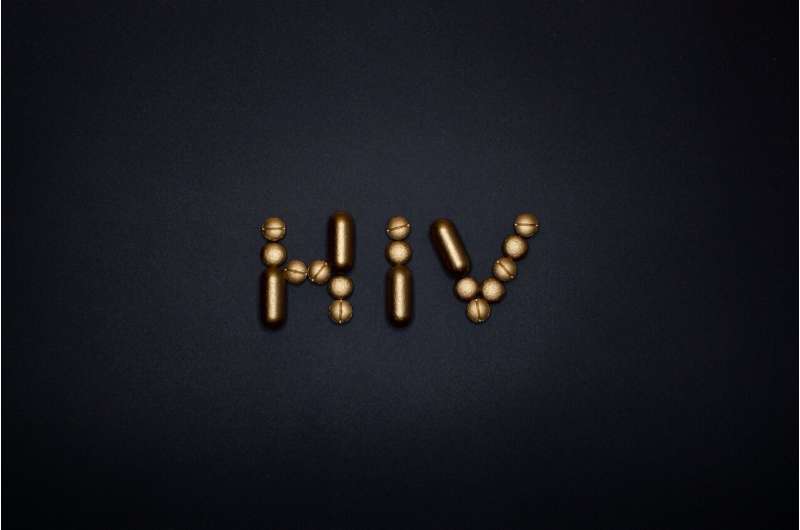This article has been reviewed according to Science X's editorial process and policies. Editors have highlighted the following attributes while ensuring the content's credibility:
fact-checked
trusted source
proofread
How COVID-19 compromised US gains in controlling HIV

The COVID-19 pandemic slowed previous gains made in controlling HIV blood levels and worsened health disparities, according to UC Francisco researchers leading the largest U.S. evaluation of the impact of the public health crisis on people with HIV.
While the country had been making progress on its goals to reduce HIV before COVID-19, the researchers found the pandemic compromised those gains by leveling off improvements in the overall population and worsening outcomes among Black patients and people who inject illicit drugs.
"Equity in HIV outcomes likely worsened during the pandemic, with decreased access to necessary care and increased socioeconomic impacts disproportionately affecting these populations," said the paper's first author, Matthew Spinelli, MD, assistant professor in the Division of HIV, Infectious Diseases and Global Medicine at UCSF and the Pricilla Chan and Mark Zuckerberg San Francisco General Hospital and Trauma Center.
The study was published Nov. 14, 2023 in Clinical Infectious Diseases.
The researchers used data from 17,999 participants from Jan. 1, 2018 to Jan. 1, 2022 at eight large HIV clinics in Baltimore, Birmingham, Boston, Chapel Hill, Cleveland, San Diego, San Francisco and Seattle. They compared results from Jan.1, 2018 to March 21, 2020, tracking outcomes as the pandemic progressed.
Past progress in controlling the virus came to a virtual standstill during the pandemic for the general population. But for certain subsets, mainly Black patients as well as those with a history of injection drug use, the pandemic worsened their outcomes. The percentage of Black patients who kept their viral loads suppressed decreased from 87% to 85%, and for people who inject drugs their level dropped from 84% to 81%.
The shelter-in-place orders around the country limited access to care for patients, especially those who were already experiencing health disparities. Factors included the shift to telemedicine to provide HIV services as well as reduced in-person medical visits. Increased isolation also led to worsening substance use, loneliness and mental health issues for some individuals.
UCSF's Spinelli said the results show the U.S. may not reach its goals to eliminate HIV by 2030 as part of the federal government's initiative Ending the HIV Epidemic in the U.S.
"We will need to redouble our efforts in responding to the HIV epidemic to regain our momentum, with a focus on improving health equity so that no one is left behind," Spinelli said.
More information: Matthew A Spinelli et al, Viral Suppression Trajectories Destabilized After Coronavirus Disease 2019 Among US People With Human Immunodeficiency Virus: An Interrupted Time Series Analysis, Clinical Infectious Diseases (2023). DOI: 10.1093/cid/ciad657





















